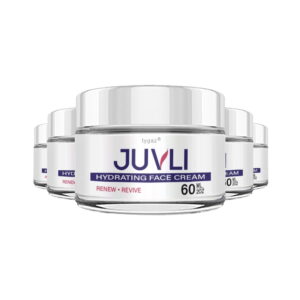Sweating is an integral part of body temperature regulation. But excessive and unpredictable sweating can become disruptive to daily activities and life in general. Dive into the intriguing realm of perspiration as we unravel the mysteries of ‘What Causes Sweating.’ Explore the physiological factors and gain insights for a sweat-free lifestyle.
Evening sweating could be an indicator of an underlying health issue such as thyroid conditions, low blood sugar, nerve disorders or medication use; or cancer such as leukemia. Seek medical assistance immediately if the sweating becomes severe or sudden.
Table of Contents
Primary Hyperhidrosis
Sweating is your body’s natural way of cooling itself and usually activated by your nervous system in response to rising temperature or when feeling stressed and anxious. For people suffering from primary hyperhidrosis, however, faulty nerve signals cause the eccrine sweat glands to overactive over a prolonged period. Symptoms of primary hyperhidrosis include excessive sweating for weeks that affects palms, soles, armpits or groin areas as well as breast areas. It can negatively impact daily activities and make socializing difficult – people living with this condition may carry napkins, antiperspirants or towels just in order to stay cool during times when sweating episodes occur.
Hyperhidrosis’ causes remain unknown, though most doctors believe it to be hereditary in nature and trigger the nervous system to overreact and activate sweat glands when they shouldn’t. Affecting around one to three percent of people worldwide and starting in childhood or adolescence it can range in severity from mild to severe cases.
If you suffer from this condition, other symptoms may arise, including excessive night sweating (nocturnal hyperhidrosis) which can disrupt sleep and cause skin infections from bacteria and yeast growing on wet skin. Furthermore, taking certain medicines like antidepressants and anticholinergics increases your likelihood of experiencing such symptoms.
If your sweating interferes with daily life, and prevents you from performing your duties effectively, medical assistance should seek immediately. Furthermore, inform them about any symptoms such as weight changes or rashes you experience.
An extensive physical exam can reveal if your discomfort is the result of health conditions such as thyroiditis, heart disease or diabetes. You’ll asked questions about family history as well as having your temperature taken and have thermoregulatory sweat tests conducted to measure sweat production in your body.
Your doctor may also suggest lifestyle adjustments to help alleviate your symptoms, such as cutting back on caffeine, alcohol and spicy foods that trigger sweating. A diet low in sodium may also prove helpful; too much salt increases fluid retention which leads to sweating.
Medication
Sweating can be one of the side effects of medications, so if you’re taking one and notice yourself sweating heavily, talk to your physician immediately – they may adjust your dosage or switch you to something that won’t trigger it.
Antidepressants such as tricyclic antidepressants amitriptyline (Elavil), desipramine (Norpramin), and protriptyline (Tryptophan) have found to cause sweating. Opioids like morphine (MS Contin, OxyContin), and oxycodone can also induce heavy sweating due to stimulating mast cells to release histamine which leads to skin irritation and sweating. Clonidine and alprazolam can also increase serotonin levels within your brain which raises heart rates; this causes skin irritation which then results in sweating. Tramadol can increase serotonin levels thus leading to serotonin syndrome which includes shaking hands rapid heartbeat, sweating as well as sweaty palms from overdosing.
Some cancer treatments, particularly those used to treat melanoma and lung cancer, such as pemetrexed (Alkeran), ipilimumab (Yervoy), and pembrolizumab (Keytruda), have also been known to trigger sweating; examples include pemetrexed (Alkeran), ipilimumab (Yervoy), and pembrolizumab (Keytruda). Other medications which have reported as inducing sweating include antibiotics, psychiatric medicines such as escitalopram (Lexapro) or sertraline (Zoloft), high blood pressure drugs, high blood pressure medicines for dry mouth issues as well as nutritional supplements.
People living with leukemia, an aggressive form of cancer that attacks bone marrow and lymphatic systems, frequently experience sweating during treatment. This may be because leukemia interferes with how white blood cells operate – this is why it is crucial to visit your physician for a diagnosis and plan of care.
Diaphoresis, or excessive sweating, is a very common side effect of menopause that may occur both day and night, making you very uncomfortable. Hormonal changes during perimenopause cause false signals to the brain that your body is overheating which in turn cause “hot flashes” during the day as well as night sweats at night.
If you’re experiencing diaphoresis, speaking to your physician could provide several effective treatments that may ease its symptoms – including lifestyle adjustments and changing the dose or type of medications you take. If symptoms become bothersome or disrupt daily activities, speaking to a dermatologist who can prescribe antiperspirant or other solutions could also provide some relief.
Hormone Changes
Sweating is an integral part of how the human body stays cool, with your nervous system stimulating sweat glands to produce perspiration that evaporates on the skin’s surface and keeps you cool. Most people sweat when the temperature rises, they exercise or experience nervous or anxious feelings; but some individuals’ glands overreact and cause sweating even at cooler temperatures or when at rest; this condition is known as hyperhidrosis.
Hormonal fluctuations during menopause, perimenopause and pregnancy can contribute to excessive sweating in women. Estrogen, progesterone and testosterone all interact with your hypothalamus – an organ responsible for controlling temperature regulation within blood vessels, skin and sweat glands – in ways that lead to sweat gland activation.
Eccrine sweat glands located all over your body – especially your armpits, palms and soles of feet – secrete watery fluid known as perspiration that contains salts and chemicals to regulate body temperature. Most often these glands do not pose a problem and easily managed; simply wear loose fitting clothing that enables airflow or use antiperspirant deodorants to control sweating.
As well as sweating through your armpits and groin glands, apocrine sweat glands also produce another kind of sweat that contains more fat and has an unpleasant odor. Apocrine sweat can become an issue when combined with bacteria to form smelly sweat spots; this form of perspiration tends to occur more frequently in groin areas than anywhere else on your body and sometimes with no obvious reason at play.
Cancer treatments, certain heart and kidney conditions and certain other illnesses may induce excessive sweating due to your body trying to adjust to all the extra work your cells are performing to combat an illness. The result can be sweating that exceeds typical levels. This phenomenon thought to result from additional heat generated as your cells work to fight it off.
Psychotropic drugs, high blood pressure drugs and nutritional supplements may all cause sweating as side effects. If this occurs while taking one of these medications, it’s essential to inform your healthcare provider immediately.
Stress
Sweating is your body’s way of cooling off and flushing away chemicals, and is usually associated with hot weather, intense exercise, nerves and anxiety. People typically sweat heavily when in hot environments such as temperatures over 30oF (37oC), after intense physical exertion or when nervous or anxious. Heavy sweating may also occur as teens’ glands mature during puberty or during menopause as well as some women suffering thyroid problems or heart failure.
Hyperhidrosis causes people to sweat excessively even when not engaged in physical exertion or nervous feelings – often starting during puberty but persisting into adulthood when thyroid issues or heart failure arises causing thyroid conditions or heart failure in women. Hyperhidrosis usually affects armpits, hands feet or groin regions with triggers including hot weather, spicy food consumption alcohol consumption certain medications as well as medical conditions affecting these regions as well.
Step one in diagnosing night sweats is speaking with your physician. They will assess the specific symptoms you are experiencing and suggest diagnostic tests or provide treatment if appropriate – this may include changing your sleeping environment/behavior or cognitive behavioral therapy or medication or all three options simultaneously.
Staying hydrated by drinking lots of water and following a nutritious diet can help minimize sweating. Avoiding spicy foods, caffeine, sugar and alcohol intake as well as controlling diabetes blood sugar levels may also help. Furthermore, medications like antidepressants or blood pressure medicines could potentially be causing sweating; discuss this matter with your physician in case this medication causes sweating; they may be able to switch you for one with less side effects.
If you are having difficulty sleeping due to sweating, try wearing baggy bedclothes that allow your skin to breathe. Warm showers or baths, along with keeping the room at a cooler temperature before sleeping can also help. If hands or feet sweat too much for comfort, speaking to your doctor about an iontophoresis procedure could also be an option; in this method your hands or feet submerged in warm water while mild electric current is passed through it, temporarily blocking nerves which trigger sweating.
Recommended Readings:







